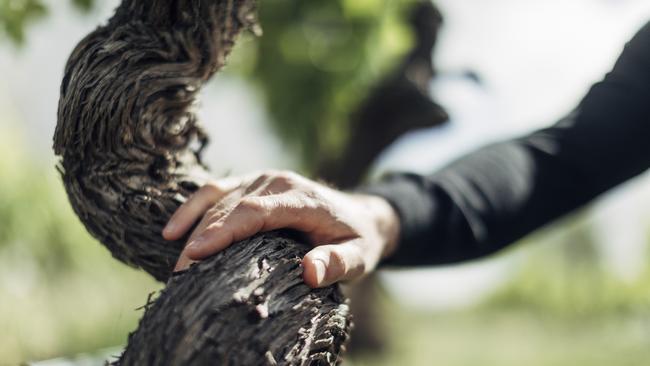Sustainability marks fine wine in Langtons Classification
Sustainability has had a long journey, from iconic wineries taking big risks to challenging perceptions and achieving new heights. Sustainable practices sit at the top table of the Langtons Classification.

Making fine wine takes time and attention to detail. Every vintage offers a new suite of challenges to growers and winemakers alike. Those with the highest of standards and ambitions are fastidious in their work, and it isn’t a case of simply being good enough.
Sustainable practices in vineyards tend to focus on organic and biodynamic. Some wineries are certified while others follow these practices in good faith. These practices can be onerous, laborious, expensive, and present higher risks while delivering lower yields. While this will have little appeal to a commercial grower, for producers of fine wine this is to be expected. Indeed many of the world’s finest in Bordeaux and Burgundy engage in sustainable practices in pursuit of the purest expression of their wines while also nurturing their precision terroir.
In Australia, Sustainable viticultural practices have experienced a significant transformation in perception and importance within the fine wine industry, particularly within Langtons Classification.
The shift in understanding sustainability, particularly organic and biodynamic practices, has evolved from being viewed suspiciously, to a genuine marker of quality and distinctiveness in fine wines. This transformation is underpinned by a deeper appreciation of the implications and the immense care these practices entail, ultimately resulting in wines of character and integrity.
Some received organic and biodynamic approaches with a degree of scepticism and, to a degree, dismissed them as do-goodery or as greenwashing, with doubts about their influence on wine quality. However, a nuanced understanding and appreciation have emerged over time, emphasising these practices’ holistic benefits.
Sustainable viticulture focuses on nurturing the land and the vines without compromising future generations, leading to healthier soils, reduced or no chemical use, and more biodiverse ecosystems. Over time, this has been linked to wines that express a truer sense of terroir, character, and a distinctive identity, debunking earlier doubts. Moreover, organic and biodynamic practices go beyond mere sustainability in the vineyard; they are regenerative and develop natural resilience.
Pioneering viticulturists, such as Vanya Cullen (Cullen Wines, Margaret River) and Julian Castagna (Castagna Wines, Beechworth), have been pivotal in driving this shift. Vanya Cullen has been a trailblazer in sustainable practices, most notably in biodynamics. Their dedication to sustainable viticulture has become a hallmark of their brands, and their wines showcase the benefits — wines with heightened expression of terroir, exceptional purity, and a unique sense of place. Indeed, the wines have never been better. Having the determination, courage, and vision to embark on this difficult journey has yielded rich rewards that manifest in places beyond the balance sheet.
In Beechworth, Julian Castagna has embraced biodynamic principles in grape growing. His commitment to meticulous, hands-on farming has contributed to sustainable land management. It has also resulted in wines that resonate with a sense of authenticity and energy, affirming the transformation in perception regarding sustainable practices.
This commitment requires more labour, more risk, and higher costs in the vineyard. Having landed the fruit in the winery, why then would a winemaker overextract, entomb the wine in oak, or mask the identity of the terroir with various artefacts of winemaking? Julian Castagna wants to make wines that are unique from his piece of Beechworth, rather than indistinct varietal wines with the conspicuous sense of anywhere.
In Eden Valley, Prue Henschke adopted this philosophy when the world was still guffawing at then Prince Charles for his “woo woo” ideas (and those of the entire movement) about a more conscientious approach to agriculture. Prue Henschke’s dedication to organic and biodynamic approaches, since around the time of the first Classification in 1990, is evident in wines that express the region’s distinctiveness. The most recent vintages from Henschke are now subject to universal acclaim and a high demand at auction with the most recent vintages hailed as all-time greats produced by this historic winery.
The implied care and attention involved in sustainable viticultural practices are profound. The proactive planning and the increased labour involved, such as using cover crops and natural predators instead of pesticides, require a deep understanding of the ecosystem and an unwavering commitment to quality. These practices lead to reduced yields, making the resulting grapes more concentrated and flavorful but susceptible to environmental hazards. However, the careful balance and dedication to sustainable practices result in wines that stand out in quality and distinctiveness. Subsequently, demand soars among fine wine lovers and collectors.
Once viewed sceptically, sustainable viticultural practices have undergone a paradigm shift in the Australian fine wine industry. Now recognised as markers of quality and distinctiveness, these practices demand the care and attention necessary for crafting exceptional wines. Pioneering winemakers like Henschke, Cullen, and Castagna have illustrated the tremendous potential and positive impact of sustainable viticulture, reaffirming that responsible, holistic farming not only benefits the environment but also (perhaps moreover) yields living wines that capture the essence of their origin.
-
Learn more about Langtons Classification event series here.
-






